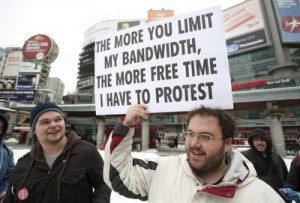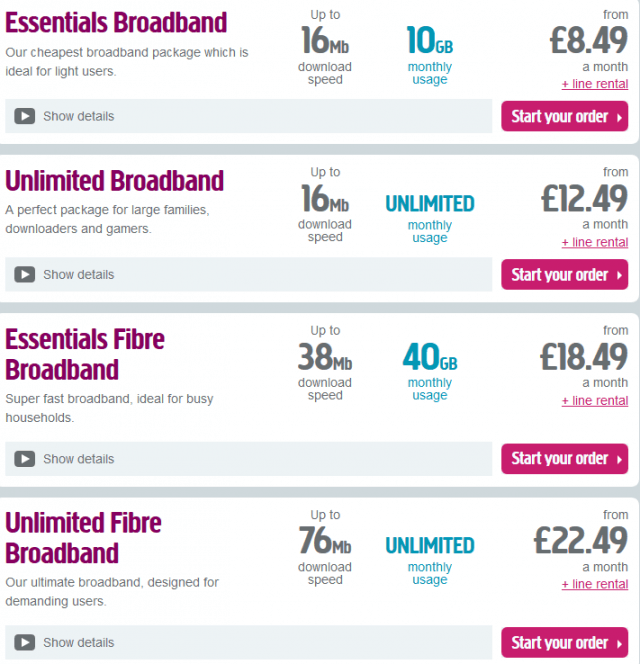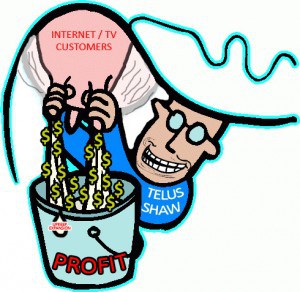
Time Warner Cable customer hate usage caps and usage-based pricing.
Time Warner Cable admits customers don’t want usage-based pricing of their broadband service, with only a fraction of one percent of their nationwide customer base choosing to enroll in usage-limited plans in return for a discount.
Time Warner began offering customers a usage-based plan more than two years ago, with discounts starting at $5 a month for light users. Sources at the cable company have repeatedly told Stop the Cap! usage-based pricing has never been popular with customers with only a handful enrolling every month. That was confirmed this week by Time Warner Cable CEO Rob Marcus, noting despite offers of discounts for 5GB and 30GB usage-allowance plans, neither are popular. In fact, Marcus admitted customers strongly want to keep their unlimited use plans.
Speaking at the Deutsche Bank Media, Internet, and Telecom Conference, Marcus added that regardless of the plans’ unpopularity, he intends to keep them around to sell the idea that customers should get acquainted with paying based on usage.
 “If you take the 30GB a month and compare it to what median usage is, let’s say high 20s — 27GB a month, that would suggest a whole lot of customers would do well by taking the 30GB service,” Marcus said. “Notwithstanding that, very few customers — in the thousands — have taken the usage based tiers and I think that speaks to the value they place on unlimited — not bad because we plan to continue to offer unlimited for as far out as we can possibly see.”
“If you take the 30GB a month and compare it to what median usage is, let’s say high 20s — 27GB a month, that would suggest a whole lot of customers would do well by taking the 30GB service,” Marcus said. “Notwithstanding that, very few customers — in the thousands — have taken the usage based tiers and I think that speaks to the value they place on unlimited — not bad because we plan to continue to offer unlimited for as far out as we can possibly see.”
Despite the low enrollment, Marcus has no plans to jettison usage pricing anytime soon.
“I think that the concept of ‘use more-pay more – use less-pay less’ is an important principle to have established, so notwithstanding the low uptake of the usage-based tiers I think it is a very important component of our overall pricing philosophy.”
Time Warner Cable CEO Rob Marcus admits usage based pricing plans for broadband are exceptionally unpopular with customers, with only a few thousand enrolled. Mar. 12, 2014 (2:03)
You must remain on this page to hear the clip, or you can download the clip and listen later.
Clip is fixed and working now.


 Subscribe
Subscribe


 AT&T wants customers to pay attention to their broadband account’s monthly usage limits: 150GB for DSL or 250GB for U-verse. Customers who exceed their allowance are more likely than ever to get a warning letter from AT&T threatening overlimit fees if they continue to ‘use too much’ Internet.
AT&T wants customers to pay attention to their broadband account’s monthly usage limits: 150GB for DSL or 250GB for U-verse. Customers who exceed their allowance are more likely than ever to get a warning letter from AT&T threatening overlimit fees if they continue to ‘use too much’ Internet.
 Bigger discounts can be had for television and Internet service — cable television remains immensely profitable in Canada and broadband is cheap to offer, especially in cities. Americans often pay $80 or more for digital cable television packages, Canadians pay an average of $60.
Bigger discounts can be had for television and Internet service — cable television remains immensely profitable in Canada and broadband is cheap to offer, especially in cities. Americans often pay $80 or more for digital cable television packages, Canadians pay an average of $60.
